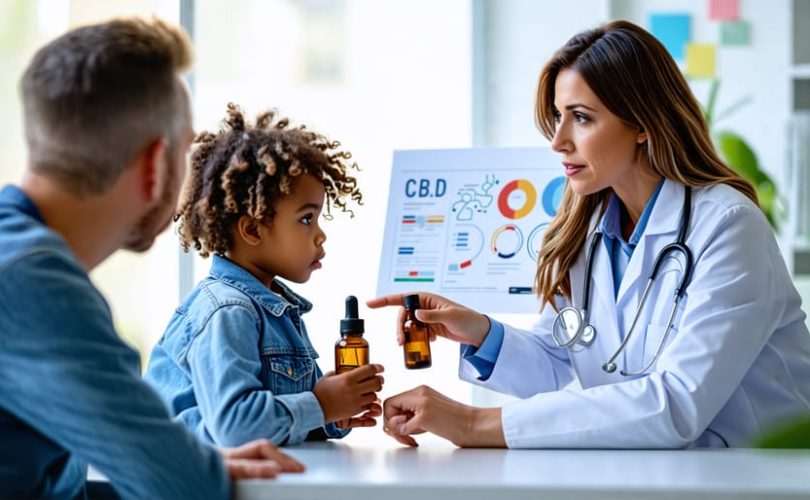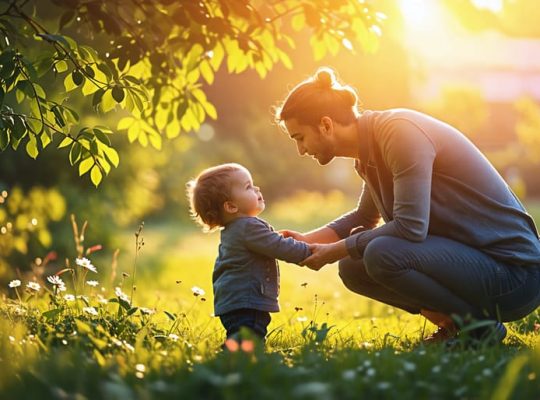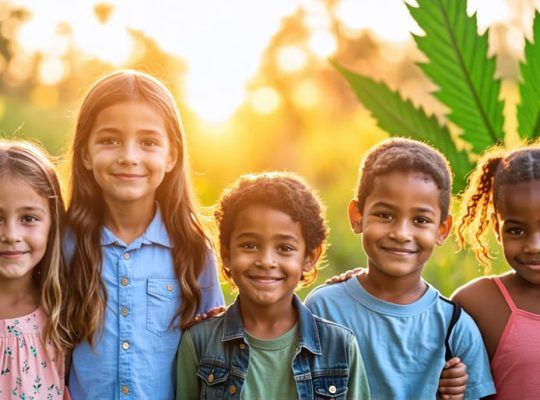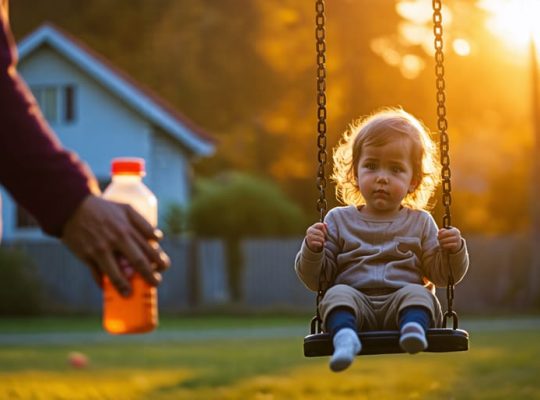CBD, or cannabidiol, is a hot topic these days – especially when it comes to its potential benefits for children and teens. But as a parent, you likely have some pressing questions: Is CBD safe for minors to use? What does the research say about its effects on developing brains and bodies? And perhaps most importantly, is it even legal to give CBD to kids?
In this article, we’ll dive into the complex issue of minors and CBD use. We’ll look at what the science says about CBD’s safety profile in children and adolescents, examine the current legal landscape around CBD and minors, and discuss some important considerations for parents to keep in mind if they’re thinking about CBD as an option for their child. While research is still limited, we aim to provide clear, objective information to help guide your decisions about your child’s health and wellbeing.
What is CBD and How Does it Work?
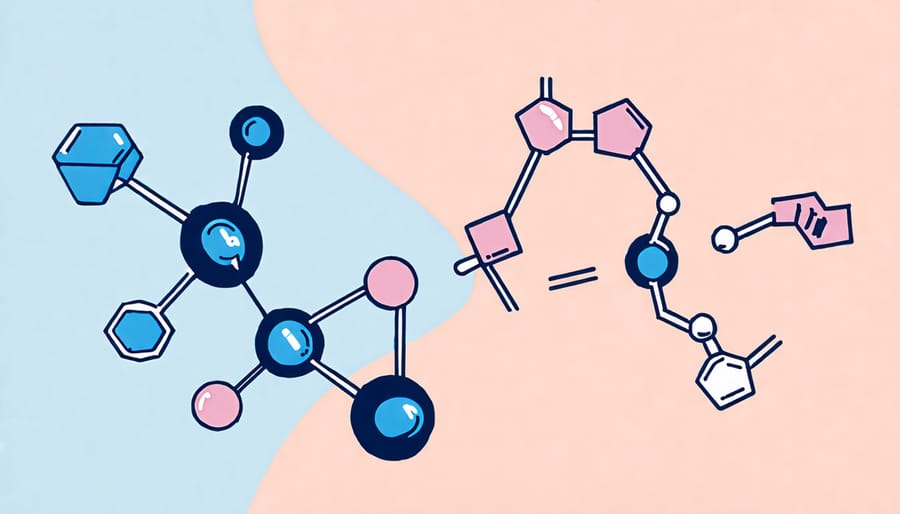
CBD vs. THC
CBD and THC are both cannabinoids derived from the cannabis plant, but they have distinct properties. THC is the psychoactive compound that produces the “high” associated with marijuana use. In contrast, CBD is non-psychoactive, meaning it does not cause intoxication or impair mental function. CBD interacts with the body’s endocannabinoid system to potentially provide therapeutic benefits without the mind-altering effects of THC. It’s crucial to note that while some CBD products may contain trace amounts of THC, reputable manufacturers ensure their products have THC levels below the legal limit of 0.3%, making them safe and non-intoxicating for use by minors under professional guidance.
Potential Therapeutic Benefits
CBD, or cannabidiol, is a compound found in hemp and cannabis plants that has shown promise in treating various health conditions, particularly in children. While research on CBD’s effects is still ongoing, early studies suggest it may offer several therapeutic benefits for minors.
One potential application is reducing anxiety. CBD has been shown to have anxiolytic (anti-anxiety) properties, which may help children with anxiety disorders or those experiencing situational anxiety. It works by interacting with the body’s endocannabinoid system, which plays a role in regulating mood and stress responses.
CBD may also be effective in treating seizures, especially in children with rare forms of epilepsy such as Dravet syndrome and Lennox-Gastaut syndrome. In fact, the FDA has approved a CBD-based medication called Epidiolex for treating these conditions in patients two years and older.
Another potential benefit is reducing inflammation. Chronic inflammation has been linked to various health issues, and CBD’s anti-inflammatory properties may help alleviate symptoms in children with conditions such as autoimmune disorders or inflammatory bowel disease.
It’s important to note that while these potential benefits are promising, more research is needed to fully understand CBD’s effects on children. Before giving CBD to a minor, it’s crucial to consider various Factors to Consider and consult with a pediatrician to determine if it’s appropriate and safe for your child’s specific needs.
Is CBD Legal for Minors?
CBD Derived from Hemp vs. Marijuana
CBD can be derived from both hemp and marijuana plants. While both plants are part of the cannabis family, they have distinct legal classifications. Hemp-derived CBD is legal under federal law, as hemp contains less than 0.3% THC, the psychoactive compound in cannabis. In contrast, marijuana-derived CBD may contain higher levels of THC and is still considered a controlled substance under federal law, despite being legal in some states for medical or recreational use. As a result, most commercially available CBD products are sourced from hemp to ensure compliance with federal regulations. It’s crucial to verify the source and THC content of any CBD product before considering its use for minors, and to consult with a pediatrician to determine if CBD is a safe and appropriate option for your child’s specific needs.
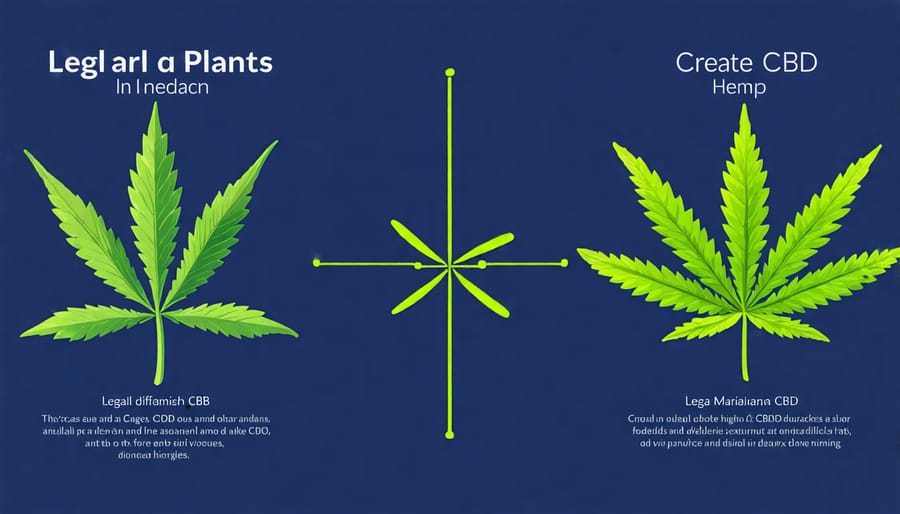
Importance of Consulting with a Pediatrician
Before considering CBD use for your child, it is crucial to consult with their pediatrician. As medical professionals specializing in children’s health, pediatricians can provide personalized guidance based on your child’s unique needs and medical history. They can help you understand the potential risks and benefits of CBD, determine appropriate dosages, and monitor for any adverse effects. Pediatricians can also advise on the legality of CBD use for minors in your area and recommend reputable products if deemed appropriate. Remember, open communication with your child’s doctor is key to ensuring their safety and well-being when exploring any new treatment options.
Safety Concerns and Precautions
Possible Side Effects
While CBD is generally well-tolerated, it can cause some side effects, especially in children. The most common side effects include drowsiness, fatigue, and changes in appetite or weight. In some cases, CBD may also cause diarrhea, dry mouth, or low blood pressure. It’s important to note that CBD can interact with certain medications, such as blood thinners or drugs that are metabolized by the liver. This is why it’s crucial to consult with your child’s pediatrician before giving them CBD, especially if they are taking any other medications or have pre-existing health conditions. Your pediatrician can help determine if CBD is safe and appropriate for your child, as well as monitor for any potential side effects or interactions. They may also recommend adjusting the dosage or trying alternative treatments, such as CBD for Depression and Anxiety, depending on your child’s individual needs and circumstances.

Importance of Quality and Dosage
When considering CBD for minors, it’s crucial to prioritize quality and appropriate dosage. Always opt for high-quality CBD products from reputable brands that undergo rigorous third-party testing. This ensures the product is free from contaminants and contains the advertised CBD concentration. Start with the lowest effective dose and gradually increase if needed, closely monitoring your child’s response. Consult with your pediatrician to determine the right dosage based on your child’s age, weight, and specific health concerns. Remember, while CBD is generally well-tolerated, it can interact with certain medications and cause side effects. By choosing quality products and working with a healthcare professional to establish a safe dosage, you can minimize potential risks and optimize the potential benefits of CBD for your child’s well-being. As with any supplement or treatment, a cautious and informed approach is essential when it comes to supporting your child’s health and development.
Long-Term Effects and Research Limitations
While CBD shows promise for certain pediatric conditions, more research is needed to fully understand its long-term effects on developing minds and bodies. Current studies have mostly focused on short-term use and specific conditions. As interest in CBD for children grows, experts emphasize the importance of rigorous, long-term clinical trials to establish safety profiles, optimal dosing, and potential interactions with other medications. Parents considering CBD should be aware of these limitations and discuss any plans with their child’s pediatrician to weigh potential risks and benefits based on their unique needs.
Conclusion
In conclusion, the use of CBD by minors is a complex issue that requires careful consideration and guidance from healthcare professionals. While some studies suggest potential benefits for certain conditions, more research is needed to fully understand the effects of CBD on developing brains and bodies. It’s crucial for parents and caregivers to have open, honest conversations with their child’s pediatrician before making any decisions about CBD use.
The legal status of CBD for minors varies by location, so it’s important to stay informed about local laws and regulations. When considering CBD products, always look for high-quality, third-party tested options from reputable sources to ensure safety and purity.
Ultimately, the decision to use CBD for a child should be made on a case-by-case basis, weighing the potential benefits against any risks. By staying informed, working closely with healthcare providers, and prioritizing the well-being of the child, parents and caregivers can make the best choices for their family. For more information and support, consult with your pediatrician or visit trusted resources such as the American Academy of Pediatrics or the National Institute on Drug Abuse.

